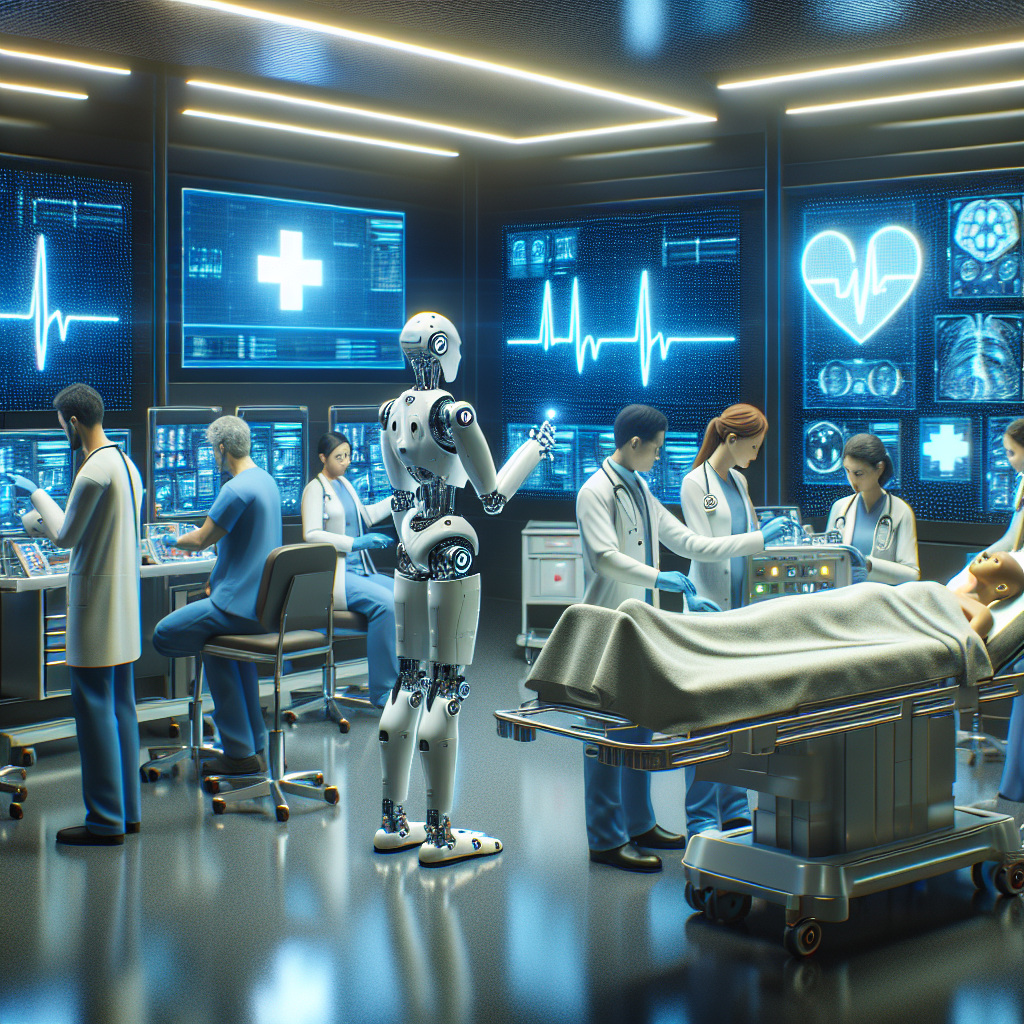AI in Healthcare: Enhancing Emergency Response
In recent years, artificial intelligence (AI) has emerged as a powerful tool in the healthcare industry, revolutionizing the way healthcare providers deliver services and improving patient outcomes. One area where AI has shown significant promise is in emergency response, where quick and accurate decision-making can mean the difference between life and death. By leveraging AI technologies, healthcare providers can enhance emergency response times, improve diagnostic accuracy, and streamline patient care, ultimately saving lives and improving overall healthcare delivery.
Enhancing Triage and Diagnosis
One of the key areas where AI is making a significant impact in emergency response is in triage and diagnosis. AI-powered systems can analyze patient data, including vital signs, medical history, and symptoms, to quickly assess the severity of a patient’s condition and prioritize care accordingly. This can help healthcare providers identify high-risk patients more quickly and ensure they receive the appropriate level of care in a timely manner.
AI can also assist in diagnosing conditions more accurately and quickly than traditional methods. By analyzing medical images, such as X-rays or MRIs, AI algorithms can help healthcare providers identify abnormalities or potential issues that may be missed by the human eye. This can lead to faster and more accurate diagnoses, allowing for prompt treatment and better patient outcomes.
Improving Communication and Coordination
In emergency situations, communication and coordination among healthcare providers are crucial for delivering timely and effective care. AI-powered systems can help streamline communication by providing real-time updates on patient status, test results, and treatment plans to all members of the healthcare team. This ensures that everyone is on the same page and can make informed decisions quickly, leading to more efficient care delivery and better patient outcomes.
Additionally, AI can assist in coordinating care across different departments and healthcare facilities. By analyzing patient data and treatment protocols, AI algorithms can help healthcare providers identify the most appropriate course of action for each patient and ensure that they receive the right care at the right time. This can help reduce delays in treatment and improve overall patient satisfaction.
Enhancing Predictive Analytics
Another key benefit of AI in emergency response is its ability to enhance predictive analytics. By analyzing large amounts of patient data, AI algorithms can help healthcare providers identify patterns and trends that may indicate potential health risks or emergencies. This can help providers proactively identify high-risk patients and intervene before a crisis occurs, ultimately improving patient outcomes and reducing healthcare costs.
For example, AI-powered systems can analyze a patient’s medical history, vital signs, and other relevant data to predict the likelihood of a heart attack or stroke. Healthcare providers can then take proactive measures, such as adjusting medication or recommending lifestyle changes, to reduce the risk of a cardiovascular event. This not only improves patient outcomes but also helps prevent costly emergency room visits and hospitalizations.
Addressing Common Concerns
While AI has the potential to revolutionize emergency response in healthcare, there are also some common concerns and challenges that need to be addressed. One of the main concerns is the potential for bias in AI algorithms, which can lead to inaccuracies and disparities in patient care. To address this issue, healthcare providers must ensure that AI algorithms are trained on diverse and representative datasets to minimize bias and ensure fair and accurate decision-making.
Another concern is the need for robust data security and privacy measures to protect patient information. Healthcare providers must implement strict protocols and encryption methods to safeguard patient data and ensure compliance with regulatory requirements, such as the Health Insurance Portability and Accountability Act (HIPAA). By prioritizing data security and privacy, healthcare providers can build trust with patients and ensure that AI technologies are used responsibly and ethically.
Frequently Asked Questions (FAQs)
Q: How can AI improve emergency response times in healthcare?
A: AI can help improve emergency response times by assisting in triage and diagnosis, enhancing communication and coordination among healthcare providers, and utilizing predictive analytics to identify high-risk patients and intervene proactively.
Q: What are some of the key benefits of using AI in emergency response?
A: Some key benefits of using AI in emergency response include faster and more accurate diagnoses, improved communication and coordination among healthcare providers, enhanced predictive analytics for identifying high-risk patients, and ultimately saving lives and improving patient outcomes.
Q: What are some common concerns and challenges associated with AI in healthcare?
A: Common concerns and challenges associated with AI in healthcare include the potential for bias in AI algorithms, data security and privacy issues, regulatory compliance requirements, and the need for ongoing training and education for healthcare providers to effectively utilize AI technologies.
Q: How can healthcare providers ensure that AI algorithms are unbiased and accurate?
A: Healthcare providers can ensure that AI algorithms are unbiased and accurate by training them on diverse and representative datasets, regularly monitoring and evaluating algorithm performance, and implementing transparency and accountability measures to ensure fair and ethical decision-making.
In conclusion, AI has the potential to transform emergency response in healthcare by enhancing triage and diagnosis, improving communication and coordination among healthcare providers, and utilizing predictive analytics to identify high-risk patients and intervene proactively. While there are some common concerns and challenges associated with AI in healthcare, with proper implementation and oversight, AI technologies can greatly enhance emergency response and ultimately save lives. By leveraging the power of AI, healthcare providers can deliver more efficient and effective care to patients in need, leading to better outcomes and a healthier population overall.

